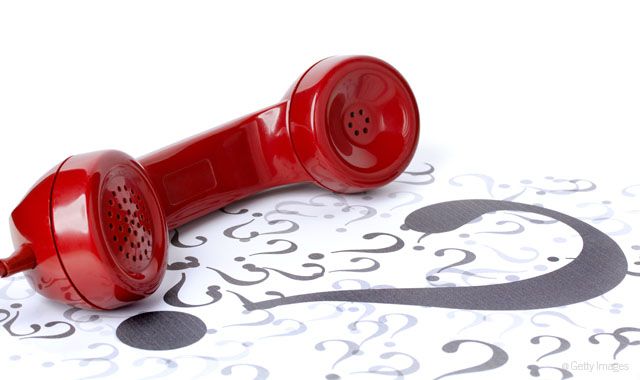5 ways mystery shoppers give you red herrings
It’s a monthly ritual. A mystery shopper calls your practice, chats with a random staff member and delivers a score. Your staff member has been rated on a scale of one to five for her phone skills. But do the rubrics mystery shoppers use really measure the abilities of your staff?

It’s a monthly ritual. A mystery shopper calls your practice, chats with a random staff member and delivers a score. Your staff member has been rated on a scale of one to five for her phone skills. But do the rubrics mystery shoppers use really measure the abilities of your staff?
In my own practice, I’ve found that mystery shoppers often rate my most successful staff members as “ineffective,” and the staff who need more training as “extremely effective.” Why is this? Because as the owner of a dental practice, I measure performance differently than a mystery shopper does. If you’re trusting mystery shopper ratings when you evaluate your staff, you may be undermining the morale of your most valuable employees while encouraging ineffective staff members to stay the course. I’ve noticed four main areas where mystery shoppers fail my practice, and where they might be failing yours.
Mystery shoppers only call occasionally
Mystery shoppers only call occasionally. They might catch a great staff member on a bad day or a terrible employee in a rare moment of competence. In addition, since they call at random times, they don’t accurately measure all the barriers your team may be putting up that are keeping new patients from coming in.
Mystery shoppers set your staff up to fail
Office staff succeed when they successfully convert a call into an appointment. Yet mystery shoppers string your staff along without offering even the possibility of success. In addition, the traits they favor, like a pleasant voice or extreme patience, may not be the traits which help your practice run efficiently. As a result, some of your most productive staff members may routinely fail their tests. For instance, I have a staff member who routinely scores a two on mystery shopper evaluations. In real life, this same employee manages to convert 82 percent of her new patient calls into appointments. That’s a phenomenal success rate, yet the mystery shopper routinely declares her in need of extensive retraining.
Trending article: The top 10 mistakes dental practices make
Mystery shoppers don’t give you enough data to evaluate your staff
A typical mystery shopper rates the staff member on a few behaviors during a single, random call. But to evaluate your staff and to help them improve, you need more information. You need to know how many calls they’re taking a month, how many are new patients and how many are returning patients. You need to know how many patients choose to schedule an appointment and why some patients choose not to schedule an appointment. You need to know if your employees understand how to explain costs and policies and whether they can give prompt, accurate answers to queries. The mystery shopper call may tell you if a staff member has good phone manners during a particular call but it won’t tell you if that person is hurting the new patient flow of the practice on a daily basis.
Trending article: 5 ways to front office excellence in your dental practice
Mystery shoppers don’t give you information on how well your office attracts and keeps new patients
In real life, the effects of a phone call don’t stop when the caller hangs up. To get an accurate gauge of staff performance, you need to understand how your practice attracts and keeps new patients. Because mystery shopper calls are staged, they don’t give you the tools you need to spot problems in the advertisement to new patient pipeline and to adjust your strategies.
Trending article: 4 ways to create the best experience for your dental patients
Mystery shoppers don’t tell you about the calls that never get through
Most dental practices drop or lose calls. Some calls are never answered. In fact, nationwide we’re tracking that the average office doesn’t answer 32 percent of their marketing-based new patient opportunity phone calls. That’s one third of the calls you paid to get! If they get a busy signal, voicemail or it rings and rings and no one picks up, an actual new patient will give up, hang up and call the next dentist on Google’s search results. Mystery shoppers, on the other hand, are motivated to get through because they’re paid for their evaluations.
It’s a fact. Real life patients hang up and try another dentist. Without the ability to track lost calls and the ability to call them back in real time, you have no idea how well your staff is doing at answering calls and converting calls to appointments. Offices that believe it’s not happening to them, whether you’re marketing or not right now, I only have one thing to say if you don’t have the data for your office: You don’t know what you don’t know.
Trending article: 4 ways to innovate your dental practice without breaking the bank
Fortunately, you don’t have to rely on mystery shoppers to track staff performance. There are tools available that will let you analyze all of the new patient calls from marketing based sources, your call to appointment conversion rate, how marketing affects your calls and how well your office phone system keeps up with call volume. For more information on how to get real data on your staff’s phone performance, visit Call Tracker ROI.
How Dentists Can Help Patients Navigate Unforeseen Dental Care
December 12th 2024Practices must equip patients with treatment information and discuss potential financing options before unexpected dental treatments become too big of an obstacle and to help them avoid the risk of more costly and invasive procedures in the future.